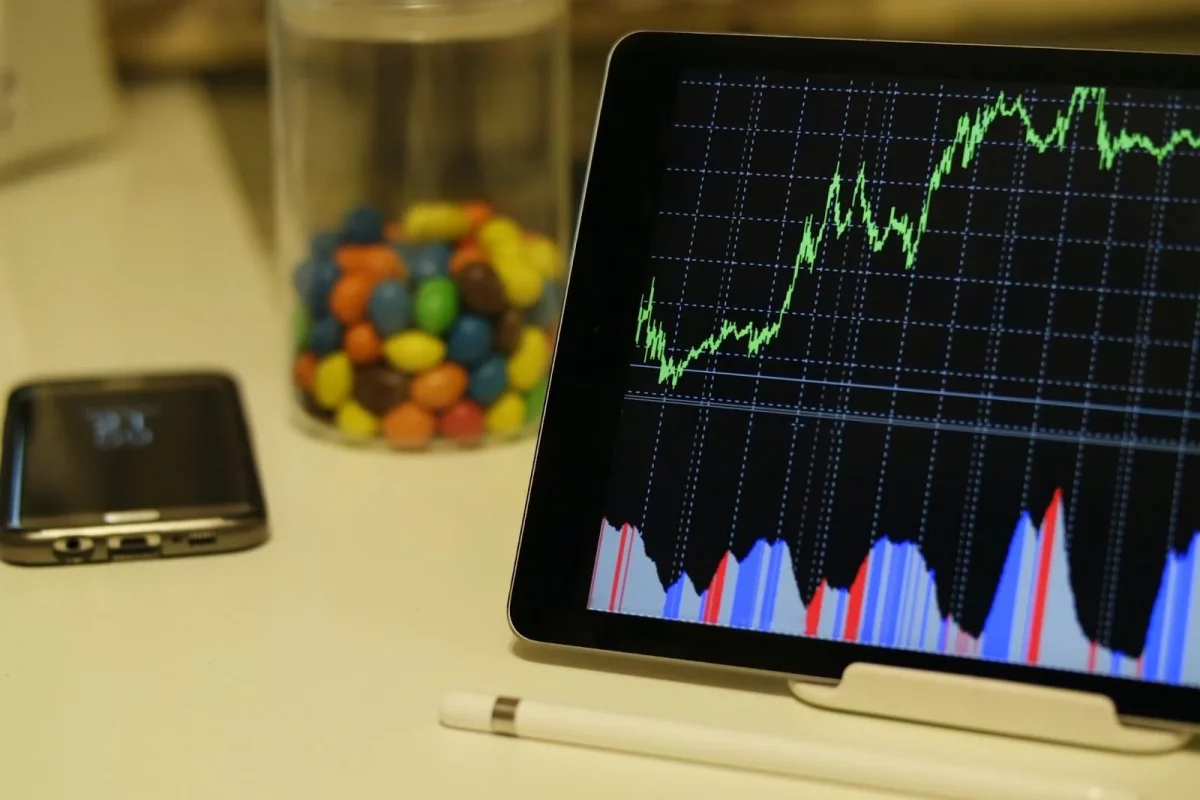Top Dow Jones Stock Picks For 2024
11.07.2024 22:00 1 min. read Alexander Stefanov
For over 128 years, the Dow Jones Industrial Average has been Wall Street's premier health barometer.
Starting with 12 industrial companies, it has evolved into a 30-component index of multinational firms known for long-term investor returns.
As we enter the second half of 2024, three standout Dow stocks are Coca-Cola, Johnson & Johnson, and Amazon.
Coca-Cola remains robust despite inflation concerns, benefiting from global brand strength and diversified operations across nearly every country.
Johnson & Johnson faces legal challenges but maintains financial resilience with strong cash flow and a focus on pharmaceuticals and medical devices.
Amazon, despite potential recession fears, thrives on diverse revenue streams including AWS, subscription services, and advertising, supported by its massive customer base and strategic content deals.
These companies offer stability and growth potential, trading at attractive valuations compared to historical averages.
-
1
U.S. Jobless Claims Dip to 218,000, Beating Expectations
25.09.2025 15:52 2 min. read -
2
U.S. Government Shutdown Stalls Key Jobs and Inflation Data
03.10.2025 16:03 2 min. read -
3
Political Battles Overshadow America’s Growing Fiscal Crisis
13.10.2025 10:00 2 min. read -
4
U.S. Faces Another Shutdown Showdown as Deadline Nears
30.09.2025 15:30 2 min. read -
5
US Shutdown: Here is When it Could Finish According to Polymarket
06.10.2025 18:00 3 min. read
Political Battles Overshadow America’s Growing Fiscal Crisis
The latest deadlock in Washington over a partial government shutdown highlights a recurring pattern: political posturing often overshadows the country’s more pressing financial challenges.
Wall Street’s New Crystal Ball: Why Bank Earnings Are Critical Amidst Economic Uncertainty
The usual deluge of economic data that guides Wall Street has run dry, interrupted by an ongoing federal government shutdown.
Markets Jittery as U.S.-China Trade Spat Revives Uncertainty in Global Supply Chains
Tensions between the United States and China have flared again after President Donald Trump imposed steep tariffs on Chinese goods, prompting a measured response from Beijing.
U.S. Consumer Confidence Holds Steady Amid Mixed Economic Signals
The latest University of Michigan survey shows U.S. consumer sentiment largely unchanged, with the index at 55.0, slightly above economists’ expectations of 54.2. September’s reading was 55.1, indicating little shift in household outlooks.
-
1
U.S. Jobless Claims Dip to 218,000, Beating Expectations
25.09.2025 15:52 2 min. read -
2
U.S. Government Shutdown Stalls Key Jobs and Inflation Data
03.10.2025 16:03 2 min. read -
3
Political Battles Overshadow America’s Growing Fiscal Crisis
13.10.2025 10:00 2 min. read -
4
U.S. Faces Another Shutdown Showdown as Deadline Nears
30.09.2025 15:30 2 min. read -
5
US Shutdown: Here is When it Could Finish According to Polymarket
06.10.2025 18:00 3 min. read
Nassim Taleb, renowned risk analyst and author of "The Black Swan", has provided insights into the recent Japanese market crash and its effects on Bitcoin.
Saifedean Ammous, renowned economist and author of The Bitcoin Standard, argues that Bitcoin offers a far superior alternative to gold.
Economist Paul Krugman remains critical of Bitcoin, especially amid the recent surge in Republican support for the cryptocurrency.
Nouriel Roubini, a renowned economist and outspoken critic of cryptocurrencies, remains steadfast in his skepticism toward Bitcoin despite its recent rally toward the $100,000 milestone.
The cryptocurrency market could be on the verge of significant growth, with economist Henrik Zeberg predicting its total market cap may rise over 140% to $9 trillion.
There have been many speculations about Bitcoin's potential after reports surfaced that former President Donald Trump suggested adding Bitcoin to the national reserve.
Peter Schiff, a prominent critic of Bitcoin, has identified large-scale withdrawals from Bitcoin exchange-traded funds (ETFs) as the biggest threat to Michael Saylor’s strategy.
Peter Schiff, an outspoken critic of Bitcoin, has warned that the United States is now in a recession and anticipates a significant increase in inflation.
On August 5, Capula Management, one of Europe's largest hedge funds, revealed it has invested close to $500 million in Bitcoin exchange-traded funds (ETFs).
A major player in Germany’s financial sector, DekaBank, has taken a significant step into the crypto industry by launching trading and custody services for institutional investors.
DekaBank has entered the spotlight by obtaining a coveted crypto custody license from Germany’s BaFin and the European Central Bank.
DZ Bank, Germany's second-largest financial institution, has teamed up with Boerse Stuttgart Digital to offer cryptocurrency trading and custody services across its network of cooperative banks.
A growing number of top hedge funds are investing in Bitcoin ETFs, with 60% of the largest 25 firms now holding these assets, signaling a broader acceptance of cryptocurrencies by institutional investors.
A startup specializing in financial tokenization is set to introduce several blockchain-based funds to the Solana network.
Banca Sella, the second-oldest bank in Italy, has announced its plans to offer Bitcoin trading.
Japan's major banks—MUFG, SMBC, and Mizuho—are gearing up to test a cross-border stablecoin transfer platform, aiming to speed up international payments for businesses.
Some Shiba Inu and PEPE holders have noticed fading hype lately, thanks to new memes like TRUMP and MELANIA snatching attention.
Kaia, the new Layer-1 blockchain developed by Kakao and LINE, has officially launched its mainnet.

